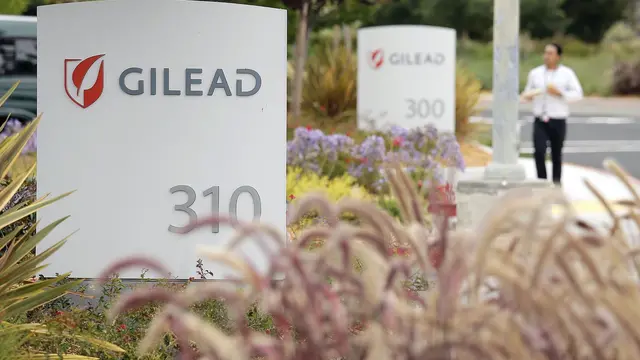One of the world's strongest hopes of treating novel coronavirus patients is the antiviral experimental drug remdesivir, but trials are showing varying results.
One study shows COVID-19 patients who were administered remdesivir recovered about 31 percent faster than those on a placebo. Another found the drug is no better than a placebo. Both studies were released late Wednesday.
Developed by Gilead Sciences, remdesivir was initially designed for the treatment of Ebola patients.
After the novel coronavirus outbreak, remdesivir has been again rolled out for human experiments to speed up the recovery period. A fast recovery rate protects hospitals from getting overwhelmed with sick patients.
It works
The U.S. National Institute of Allergy and Infectious Diseases (NIAID) carried out an extensive randomized controlled trial with 1,063 COVID-19 patients.
Patient recovery was an average of 11 days compared to an average of 15 days for patients receiving a placebo, according to the data gathered from the patients.
"Recovery in this study was defined as being well enough for hospital discharge or returning to normal activity level," said a statement released by NIAID.
But the drug's impact on reducing the number of deaths is too small. The mortality rate was eight percent for the drug group against 11.6 percent for those on placebo, a statistically insignificant difference, according to many researchers.
"The drug isn't a home run but will probably benefit some patients, especially when used early in disease course for patients at higher risk of bad outcomes," Scott Gottlieb, a former commissioner of the Food and Drug Administration (FDA) wrote in a Twitter thread.
Dr. Anthony Fauci, head of NIAID, said, "The data shows that remdesivir has a clear-cut, significant, positive effect in diminishing the time to recovery."
The U.S. is likely to fast track the antiviral use to prevent the transmission of novel coronavirus that has already infected 3.2 million and killed more than 228,000 globally as of April 30.
Trials for the drug started on February 21 at 68 locations in U.S. Europe and Asia, the new enrollments were closed on April 19.
'No significant benefit'
Another study based on a similar trial design enrolled 237 COVID-19 patients from 10 hospitals in Wuhan.
It found that "remdesivir does not speed up recovery from COVID-19 compared with placebo in hospitalized patients who are critically ill."
"Unfortunately, our trial found that while safe and adequately tolerated, remdesivir did not provide significant benefits over placebo," said Professor Bin Cao from China-Japan Friendship Hospital and Capital Medical University in China, who led the research.
The peer-reviewed study published in The Lancet maintained that the trial was halted because the lockdown made it challenging to recruit new patients. As a result, researchers couldn't study enough number of COVID-19 patients.
"We are mindful that we were only able to enroll 237 of the target 453 patients because the COVID-19 outbreak was brought under control in Wuhan," Bin Cao added.
University of Edinburgh Professor John Norrie, who was not involved with the study, said, "The particular challenges of delivering pandemic trials underline the importance of data sharing, allowing rapid curation of relevant datasets for individual patient data meta-analyses."
(Cover: Gilead Sciences said Wednesday, March 25, 2020 it will give up the specialty status it received days earlier for its COVID-19 drug amid public outrage that the company was seeking to boost the profits of its treatment. /AP)
(AP)
 简体中文
简体中文













